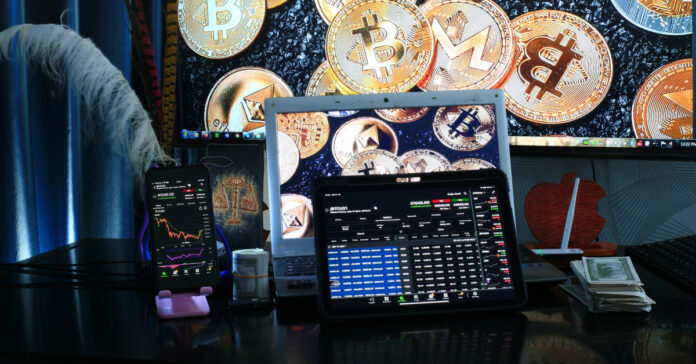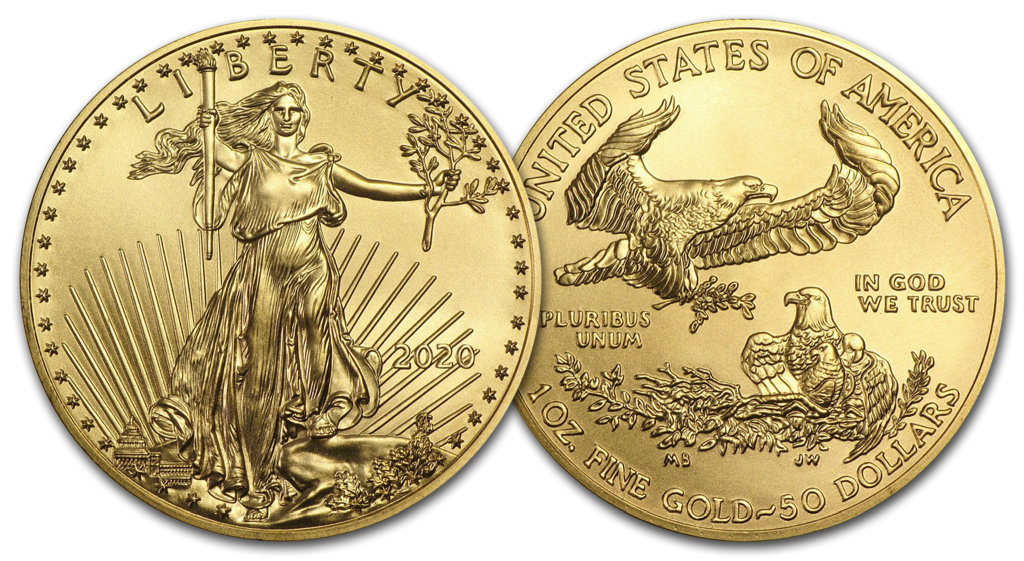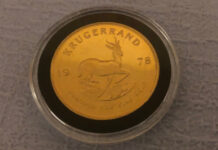
The failure of FTX is getting a great deal of attention in the financial press and on mainstream media outlets. It’s as if they want to convince you not to invest in cryptocurrencies.
When you get right down to it, it didn’t matter whether FTX was trading cryptocurrencies, gold, stocks, or mortgage-backed securities. They made poor financial decisions and appear to have engaged in fraudulent practices.
The purpose of this article is not to tell you to invest, or not to invest, in cryptocurrencies, which we have covered a few times in the past. No, this article is to remind you why it is important to control as many of your assets as you can.
Control Your Assets
If you buy gold and leave it in a broker’s vault, there’s always a chance that the broker will sell the same gold to another customer, figuring that you won’t both come and collect it at the same time. The same thing can happen with cryptocurrencies or other assets, which may have been the case with FTX. It appears that there was a run on FTX and the system collapsed, much like a bank run reveals your bank doesn’t have enough cash to allow all of its depositors to make withdrawals. Only the FDIC insures your bank balances; that isn’t the case with most investments.
How can you avoid bank runs, fraud and bad decision making by financiers? By buying gold and storing it in a location you control. By buying cryptocurrencies and transferring it to a hardware wallet you control. Don’t leave your cryptocurrency on the exchange where it can be hacked or stolen. Store it offline, like ina hardware wallet. A hardware wallet is nothing more than a specialized thumb drive with some software on it. As long as you have the wallet and your password, you have your crypto. Keep it unplugged from your computer and it’s almost impossible to hack.
Cryptocurrencies like Bitcoin can be safer to store than gold. If someone steels your gold coins, you can’t get them back. If someone steels your hardware wallet, they can’t get your Bitcoin without your password. However, if you have your wallet’s “seed” words, you can rebuild your wallet and regain control of your currency. For that reason, you should store your seed words in a secure, off-site location like your bank’s safe deposit box.
Independence and Self-Reliance
When we talk about preppers being self-reliant, it means more than raising your own food. It means relying on yourself to protect your assets. Maybe you protect them by burying them under a fencepost or beneath the woodpile, where they would be hard for someone to steal. Perhaps you protect them with a safe, a guard dog, and your Glock. Maybe you protect them by diversifying across multiple asset classes held in different locations by several different entities. It’s up to you.
I would not leave all my survival food at a warehouse and expect them to deliver it to me right before a disaster. Likewise, you shouldn’t leave your rolls of pre-1965 dimes, quarters, and fifty-cent pieces in the bank’s safe deposit box. In the event of a bank holiday, which will probably be called if there is a currency collapse or other financial disaster, you won’t be able to go get those coins. Bad timing, because that’s when you may need them the most.
If you are lucky enough to own $50,000 in silver or gold, I can understand why you wouldn’t want to store it under your mattress, but I think you should have a portion of it secure on your property, just in case. Think of it as SHTF currency.
How and where you store your assets is up to you. All I’m saying is bank accounts, brokerage accounts and retirement plans are just a series of numbers on a hard drive in a server farm that makes up the cloud. I have no doubt there are backups and redundancy, but that won’t matter when the electricity goes out. When the system fails, so do electronic assets, and liquidating your stocks is possible only if someone else is willing and able to buy them.
Hard Assets
If our decline continues and both society and our financial system collapses, we may to see a time when a good, solid shovel is worth more than a stack of hundred-dollar bills. This won’t be solely because of inflation; it will be because no one wants dollars anymore. Remember this post about how Venezuela cut six zeros off its currency? Before that change, coffee cost 5.8 million bolivars. That could happen to the dollar. If it does, that shovel will still dig a hole, but the stack of currency might not even buy a stick of gum.
Hard assets include thing like real estate, farm land, machinery, equipment, vehicles, guns, ammunition, hardware, and precious metals. Hard assets either can produce money, like machinery, or retain their value. Working assets do both.
Today, a round of XM-193 5.56 ammo from the Lake City Arsenal sells on the open market for somewhere between 45 and 82 cents if you buy it in quantity. There have been times in recent history when it sold for more than $1 per round. I bought all of my XM193 when it was less than 30 cents a round. If I had to, I could turn around and sell it at a profit. In the meantime, I can use it for self-defense, shoot a coyote that is raiding my chicken coop, or I can go hunting with it. It has value beyond its sales price.
Working Assets
My neighbor has a gas-powered log splitter. A used splitter wouldn’t sell today for what he paid for it, but after another couple years of inflation, it may. In the meantime, it splits his wood and he could rent it out or split wood for other people to make money. That’s not only a hard asset, it’s a working asset. Farmland that produces food or is leased to generate income and rental property that produces income and hopefully appreciates are also good hard – working assets.
Of course, many working assets require insurance, maintenance, or have expenses. The log splitter needs gasoline and oil. You have to pay property tax on the farm and tax on the rent. The bullets just sit there in their ammo cans, quiet but deadly, costing me nothing but some storage space.
Precious metals take even less room. A hardware wallet with $100,000 in Bitcoin can be tucked inside your pocket, stashed inside your hat, or hidden in your sock.
There are pluses and minuses for everything. It’s all a trade-off. I don’t care what you decide to do, I just want you to make an informed decision and avoid following the crowd like a lemming or let the main stream media convince you how to invest.






